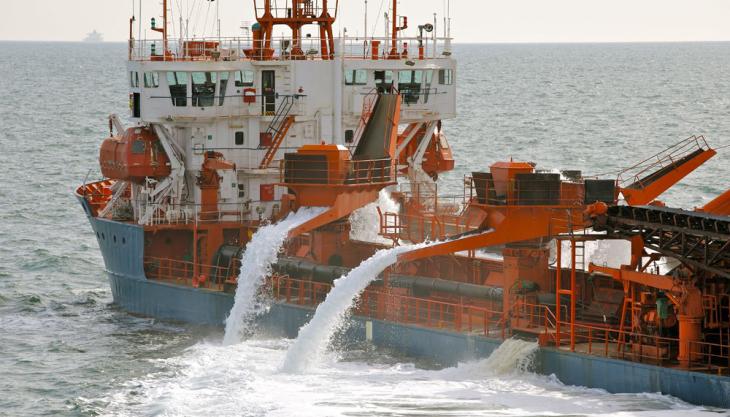
BMAPA BAP to demonstrate positive contribution towards protecting and enhancing marine biodiversity
THE British Marine Aggregate Producers Association (BMAPA) has launched a Biodiversity Action Plan (BAP) strategy which puts in place a structure to ensure that the marine aggregates industry can address the many issues surrounding protection and enhancement of marine biodiversity vigorously and uniformly across the sector as a whole.
At a time when renewal of dredging licences is critically important, the strategy will help ensure that regulators and those who advise them receive more robust and consistent information regarding marine biodiversity and the emerging UK network of Marine Protected Areas to enable informed, balanced judgements to be made.
The marine aggregates sector already has a well established sustainable development strategy, and the BAP is intended to complement other BMAPA sustainability initiatives, such as reporting on the area of seabed licensed and dredged each year, and a protocol which ensures that any archaeological finds recovered during operations are properly reported so they can be assessed.
The BMAPA BAP has been developed to dovetail with wider biodiversity initiatives covering the UK, England and Wales, and will work in tandem with the existing Marine Protected Area network, as well as the forthcoming network of Marine Conservation Zones, which are intended to protect habitats and species of national importance.
The guiding principles that underpin the strategy include:
- Ensuring that BMAPA members work to a common biodiversity framework.
- Describing the potential effects of marine aggregates dredging on biodiversity.
- Defining the priority species and habitats that may be affected.
- Identifying operational best practice for mitigation and promoting benefits.
- Formalizing a reporting and review process.
‘There has been a seismic shift in our understanding of the effects of marine aggregates extraction, enabled through a range of industry investigations, as well as wider research initiatives,’ said BMAPA chairman Kevin Seaman.
‘The enhanced levels of understanding that have resulted, particularly in terms of marine habitats and their distribution, have made a significant contribution to the ongoing development of the Marine Protected Area network.
‘Through our BAP, we hope to demonstrate the positive contribution our sector can make towards protecting and enhancing marine biodiversity – not only through the responsible management and stewardship of the areas where we operate, but also through the improved understanding made possible by the high-quality marine survey data we acquire.’
BMAPA director Mark Russell added: ‘As a sector, we believe that we have already made a significant contribution to marine environmental management and stewardship, but looking forward our challenge is to do this in a more proactive and structured way.
‘The approach we are adopting builds on the industry’s commitment to regional-scale assessment, management and monitoring, both of which are emerging themes under wider marine policy and management, and will ensure that the wider potential and value of the data we collect, together with our best-practice approaches in management, mitigation and monitoring, are able to be more fully realized.’



